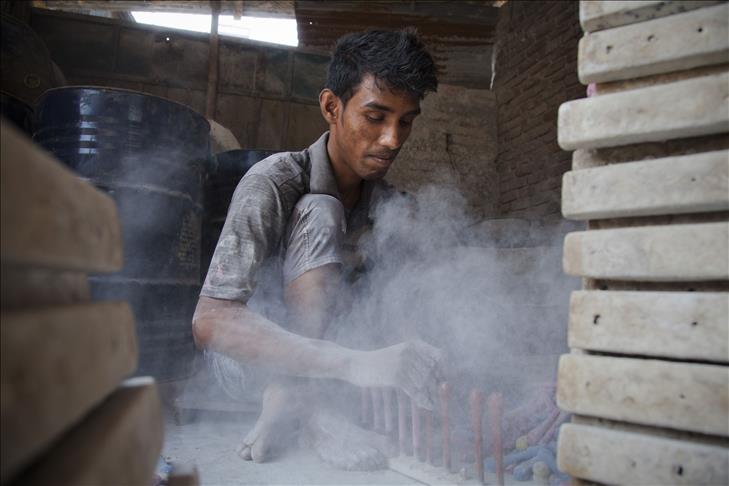
DHAKA, Bangladesh
When a factory holding thousands of garment workers collapsed in Bangladesh's capital Dhaka a year ago on this day, the country's government, its textiles industry and international retailers made promises about new regulations and compensation for survivors and the families of the 1,129 who died. The progress since has been limited.
After the April 24 collapse of Rana Plaza in Savar, policy makers, stakeholders and activists pushed for the creation of a compensation fund, which is backed by the International Labor Organization. It set its target at $40 million but so far has raised only $15 million.
The non-profit "ActionAid Bangladesh" revealed on April 20 that three-quarters of survivors have not yet returned to work, largely because of the illness and trauma they suffered in the aftermath of the collapse. The organization also said the survivors need help in meeting requirements for food, rent and loans.
Human Rights Watch also criticized the lack of progress on Wednesday and highlighted the role of international companies in not meeting their commitments.
"International garment brands should be helping the injured and the dependents of dead workers who manufactured their clothes," said Phil Robertson, Human Rights Watch's deputy Asia director.
Mojtaba Kazazi, fund's executive commissioner, said 3,639 will receive primary compensation of $650 and 580 have already received compensation directly from clothing retailer Primark. The clothing brand, which has been criticized for its use of cheap labor in the past, has already contributed $7 million -- half of what has been raised so far.
The Savar incident brought into focus a long-running dispute about the conditions and payment for workers in Bangladesh's large garment industry. Hundreds have died since 2005 in other factory fires and building collapses because of a lack of safety regulations in buildings hastily constructed to meet the industry's rapid growth.
"The Rana Plaza disaster showed the failure of proper oversight over factories manufacturing clothes for international garment brands," said Robertson.
After the collapse, international pressure led to 166 brands working in Bangladesh signing an accord committing them to better working conditions and regulations. The Bangladesh Accord Foundation, created as a result of the agreement, released its first inspection reports in March, signalling some progress towards better standards.
"Our common purpose is to enable a working environment in which no worker needs to fear fires, building collapses, or other accidents that could be prevented with reasonable health and safety measures," the foundation said in a statement Wednesday. "The Accord is moving ahead energetically, with a program of unprecedented scale, independence, rigor and transparency."
By Ferdous Ahmad Bhuiyan
englishnews@aa.com.tr


